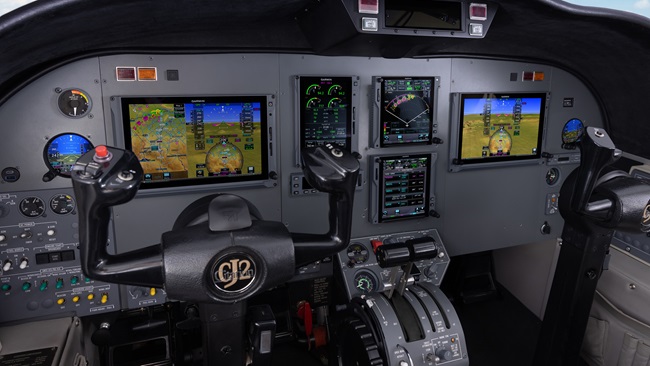New BendixKing radio repair policy in effect
Factory-only exchange began Sept. 1
BendixKing rolled out a new factory-only repair and exchange policy Sept. 1 for scores of legacy radio units. Aircraft owners and avionics shops now must send defective gear directly to the New Mexico factory for any type of repair, with a few notable exceptions. The new procedures were originally scheduled to take effect July 1.
Roger Dykmann, BendixKing’s vice president of marketing and product development, told AOPA that the company has steadily received equipment through the Sperry Exchange Program (SPEX) since the policy was made public by company president Gregg Cohen in a May dealer newsletter.
Aircraft owners, however, were quick to voice their concerns about timely repair and fee structures, with many venting through type club forums and social media.
Dykmann replied by email that he wanted to put many of those concerns to rest, explaining that SPEX exchanges ship within 24 hours. He emphasized that the company increased inventory and worldwide allocations “in anticipation of the increased demand. We have not had any reported or noticeable increase in lead-times” since the new procedures were adopted.
There are a few notable exceptions to the factory-only service requirements. The rugged KX 155/ 155A/165/165A nav/com radios, KI 256 flight command indicator for autopilots, and KLN 94 and 89B GPS navigators are still field-repairable. That means aircraft owners, flight schools, and others may visit local avionics shops for repairs to those models. Dykmann said there were literally "tens of thousands" of the KX 155-series radios in the marketplace.
Dykmann earlier noted that the company’s overall intent was to “improve customer satisfaction and turn-around time.” He said that in advance of the new policy the company did its homework “to see what parts our dealers and repair shops were buying” during a given time period so stock could be adjusted accordingly.
Several avionics repair facilities noted the need for new avionics repair manuals, citing concerns that the publications might be costly or hard to acquire. Dykmann explained that “the FAA, as a function of their rules, requires Part 145 approved repair shops to use the most recent manuals” before the original equipment manufacturer can “hang a return to service tag on a unit.”
Older repair manuals for affected legacy radios won’t be used for repairs “unless explicitly authorized by BendixKing but [they] can be used to verify unit level failures” and to help diagnose equipment issues. When asked, Dykmann replied there was no charge for the manuals “at this time.”
When AOPA learned about the shift in repair policy the association requested sample factory repair charges for commonly installed units. Aircraft owners can expect to pay a flat rate repair/exchange price of $1,274.00 for a KMA 24H audio panel; $3,228.00 for a KLN 90B GPS; $995.00 for a KY 97A com radio; $995.00 for a KI 204 indicator; $1,423.00 for a KT 76C Mode C transponder; and $1,476.00 for a KS 271A roll servo or a KS 272A trim servo associated with a KFC 150 autopilot system.
Dykmann pointed out earlier that about 90 different models of electronics were already in BendixKing’s SPEX exchange program, and the new procedures added about 160 more. He said the company had already “learned a great deal” as the new policy was rolled out and “developed strong relationships within our dealer network.”




